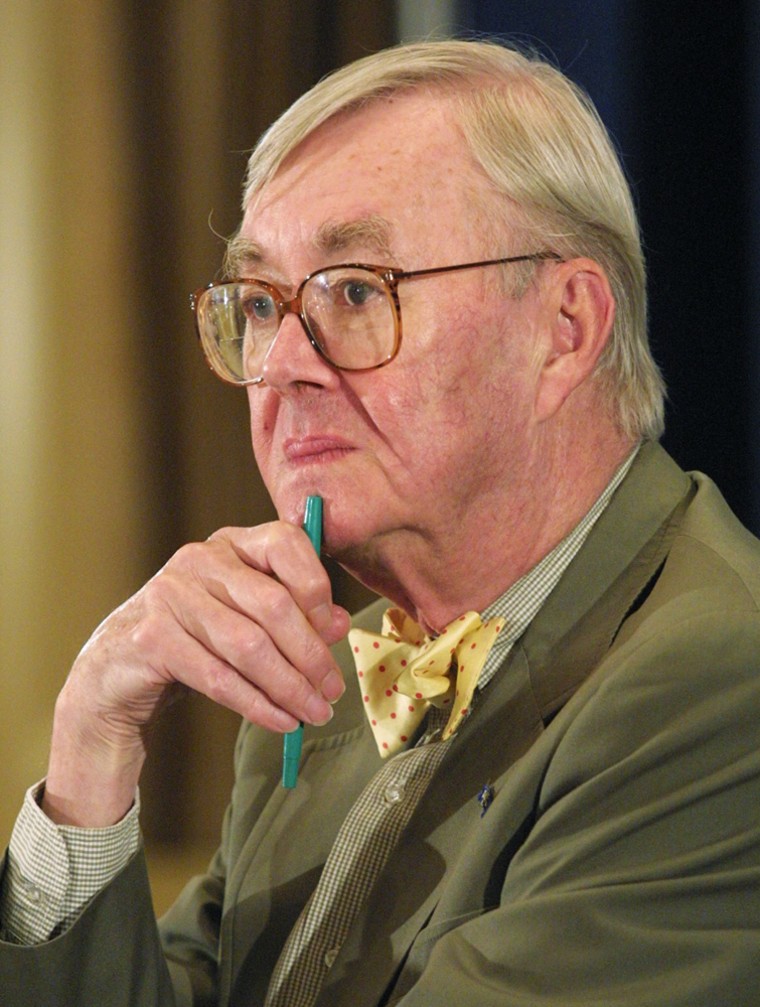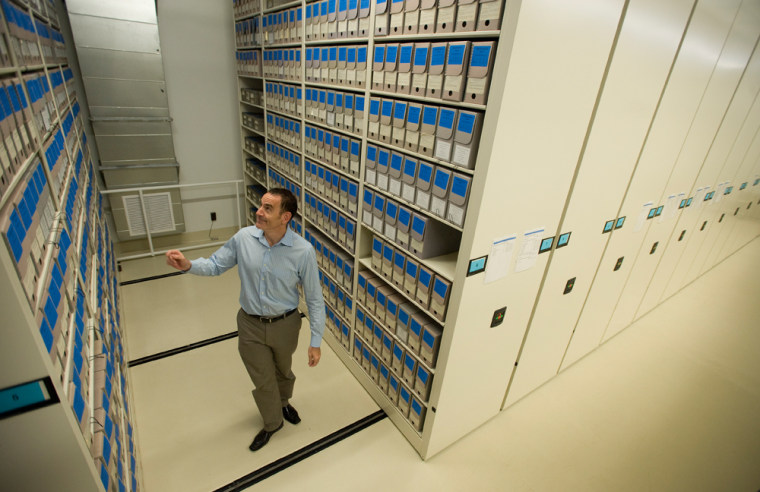Global warming warnings were debated in President Richard Nixon's administration as early as 1969, according to newly released documents examined by The Orange County Register.
The 100,000 pages of presidential records made available by the Nixon Presidential Library and Museum on Friday also portray former Nixon's inner circle as being out of touch with the American people and their sentiments against the Vietnam War.
Most of the archived documents released Friday came from the files of Nixon's Democratic adviser Daniel Patrick Moynihan.
Moynihan wrote in a September 1969 memo that it was "pretty clearly agreed" that carbon dioxide content would rise 25 percent by 2000,
"This could increase the average temperature near the earth's surface by 7 degrees Fahrenheit," he wrote. "This in turn could raise the level of the sea by 10 feet. Goodbye New York. Goodbye Washington, for that matter."
"I would think this is a subject that the Administration ought to get involved with," Moynihan wrote to John Ehrlichman, who in 1975 was convicted of conspiracy, perjury and obstruction for his role in the Watergate break-in and cover-up.
'Amazing documents'
Moynihan was Nixon's counselor for urban affairs from January 1969, when Nixon began his presidency, to December 1970.
"These are amazing documents," Library Director Tim Naftali told the Register.
From 1961 to 1976, Moynihan served in the Kennedy, Johnson, Nixon and Ford administrations. He served as the U.S. ambassador to India and the United Nations before serving four terms as U.S. senator from New York. He died in 2003.
Moynihan received a response in a Jan. 26, 1970, memo from Hubert Heffner, deputy director of the administration's Office of Science and Technology. Heffner acknowledged that atmospheric temperature rise was an issue that should be looked at.
"The more I get into this, the more I find two classes of doom-sayers, with, of course, the silent majority in between," he wrote. "One group says we will turn into snow-tripping mastodons because of the atmospheric dust and the other says we will have to grow gills to survive the increased ocean level due to the temperature rise."
Heffner wrote that he would ask the Environmental Science Services Administration to look further into the issue.
Nixon established the Environmental Protection Agency and had an interest in the environment. In one memo, Moynihan noted his approval of the first Earth Day, to be held April 22, 1970.
"Clearly this is an opportunity to get the President usefully and positively involved with a large student movement," he wrote to Ehrlichman, Nixon's adviser on domestic affairs.
The files show Moynihan makes no bones about his political affiliation and bluntly states his opinions, the Register said.

The Register cited a 1969 letter to Chief of Staff H. R. Haldeman, who was also later convicted in the Watergate scandal. Moynihan said he was disappointed with how others in the administration viewed his opinions during a recent meeting.
"The war in Vietnam is a political disaster which the President is not responsible for, and which in no circumstances should he allow himself to be labelled with.
"There seemed to be a number of people who quite clearly feel the American public is behind the war," Moynihan said of his colleagues. "Second, there are at least a few persons who seem to think the war is some kind of Presidential prerogative which we must not allow college boys or effeminate professors to infringe."
The Register said other released pages, some of whose authors remain anonymous, detail information on U.S.-British relations, the December 1971 bombing of Laos, weapons of mass destruction, welfare reform, and violence on college campuses, the Register said.
One intelligence report, written the day the Yom Kippur War started in October 1973, said neither Syria nor Egypt had the capability to launch incursions into Israel, the Register said.
"Israeli air superiority, in any case," the memo said, "is expected to quickly bunt any offensive thrust across the cease-fire line."
"This is one of the worst reports in U.S. intelligence history," Naftali said, telling the Register that Egyptian and Syrian forces came crashing into Israel within hours.
Chaplin shunned
One memo the Register reviewed discussed an invitation President Nixon received to attend a salute to Charlie Chaplin at Lincoln Center in New York. It notes Chaplin's successful film career.
"Despite the generosity of the nation toward him," it reads, "there was considerable discussion during the 1930s and 1940s about Chaplin's loyalty to even our form of government, much less the government itself."
White House press spokesman Ken. W. Clawson concluded: "I consider it inappropriate and inadvisable for us to even consider the possibility of having Charlie Chaplin come and meet with the president."
In addition, the library released 47 oral history videos. They feature interviews with people directly and indirectly involved with the Nixon administration, including Dick Cheney, Bob Dole, Carl Bernstein, and Ed Nixon, the president's brother.
Some documents and videos are available online at nixonlibrary.gov.
